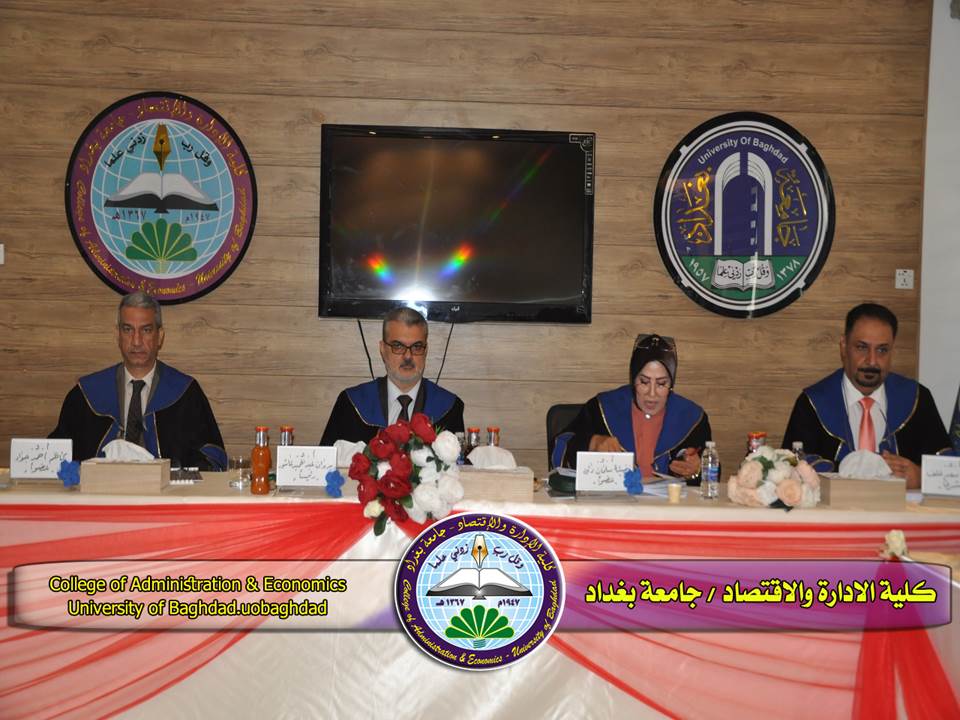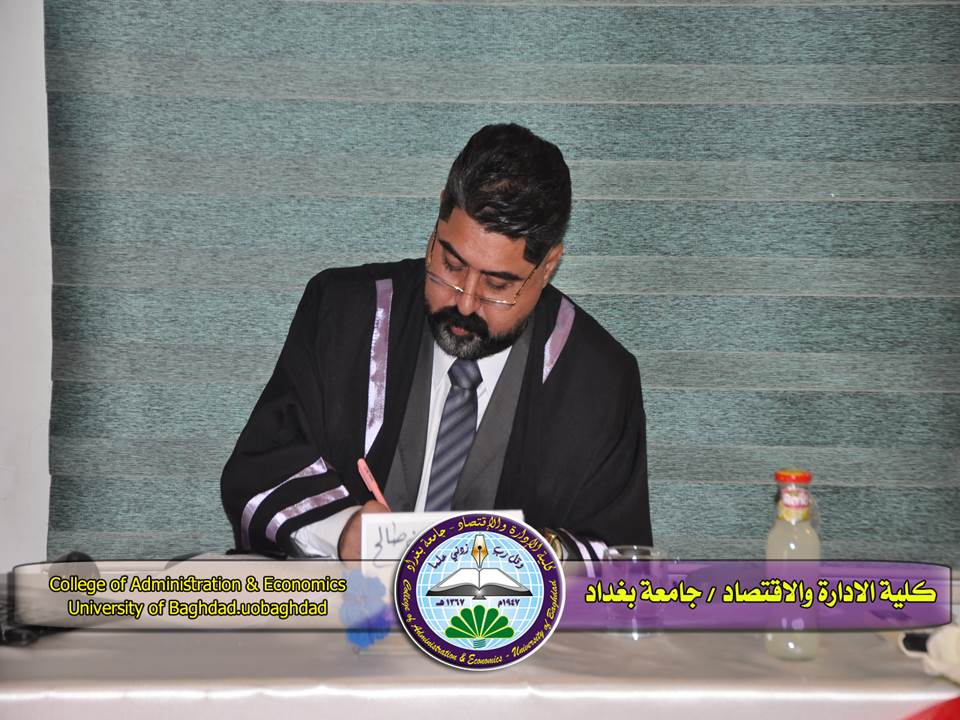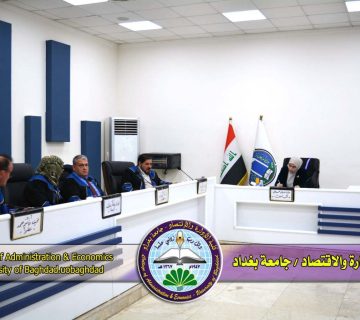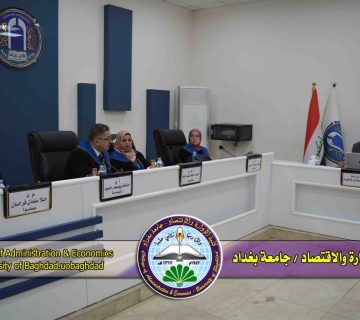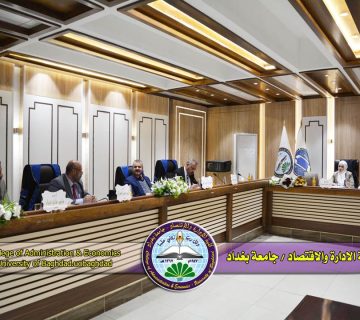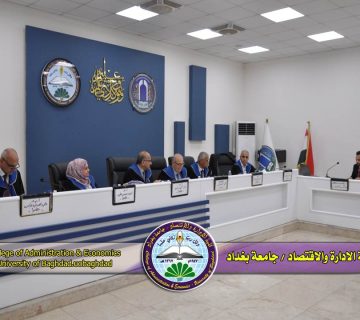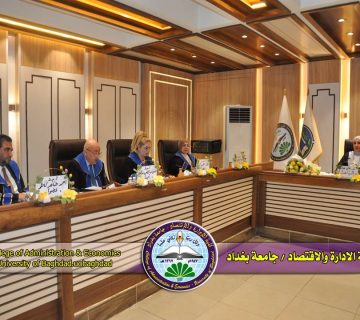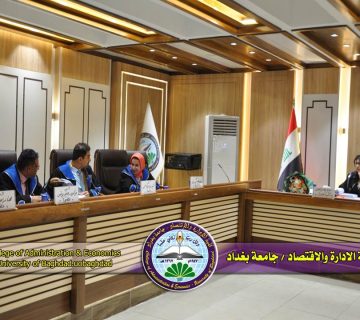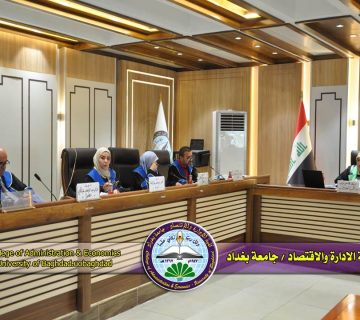The College of Administration and Economics at the University of Baghdad discussed a master’s thesis in field of Industrial Management by the student (Hayman Fakhruddin Saleh) and tagged with ( Finding the project completion time and the optimal total cost based on some scheduling methods /A case study of the Karbala Metal Silo Project)) , Under supervision of ( Pro. Dr. Waqas Saad Khalaf)
The Karbala Mineral Silo Project is one of the huge and important projects with high storage capacities in the Holy Province of Karbala, which is affiliated to the State Company for Grain Trade, which provides storage spaces for grain, which uses modern and advanced methods for the process of receiving, storing and processing grains (wheat). The main problem of the research is the limited storage capacity of the Karbala concrete Silo, which reached a storage capacity of the wheat crop (20) thousand tons, which makes farmers wait for long periods and in the form of queues for the purpose of marketing the wheat crop to the silo and this contributes to adding other costs to the farmer when unloading the marketed wheat, also the lack of application of scientific methods and modern programs in planning the project and scheduling its activities led to delaying the completion of the Karbala metal silo project, talking about its scheduled date. The project focused in general on marketing the wheat crop from the farmer to the Karbala mineral silo with a capacity of strategic storage of (30) thousand tons of local wheat crop according to the plan prepared by the Ministry of Agriculture for this province.
The objective of the research is to find the time and cost of completing the Karbala mineral silo project in normal and crash conditions using the critical path method (CPM), which will facilitate the marketing of local wheat from the farmer in the geographical area near him and export wheat to the mills and achieve a high storage capacity of the wheat crop, where manual calculations were relied on to clarify the mechanism of finding the critical path of the project network due to the existence of non-traditional relationships for many activities interspersed with periods of submission and delay (Lag and Lead) between them, and the program (MS-Project) was used to clarify the accuracy of manual calculations and also help the decision-maker if he wishes to use a sober program that interacts with changes that may occur in the future at the times or costs of activities, the method of distributing costs or financial expenditure according to the method of early start time (ES) and late (LS) was also used to calculate the process of distributing the costs of project activities and determine the area of financial differences or (financial savings) when implementing project activities.In addition, an efficient mathematical method was used, linear programming (L.P) through the formulation of mathematical models that help the decision maker to find the desired time to complete the project and achieve its objective and find the critical path using the ready-made program (Win Q.S.B V2). The results obtained from the use of critical path (CPM) and linear programming (L.P) methods showed the importance and efficiency of these two methods in scheduling the Karbala metal silo project in light of achieving the project objective and making accurate decisions the project was completed in normal conditions by 396 days and a total cost of 5,012,811,028 Iraqi dinars, but when the activities crush (compression), the time of completion of the project was in 307 days and a total cost estimated at 5,043,894,328 billion dinars, and the results also proved that the use of the method of distributing costs or financial expenditure according to the late start method (LS) helped the decision-maker to determine the area of financial abundance and the limits of financial maneuvering that he can carry out during the completion of project activities.
